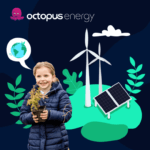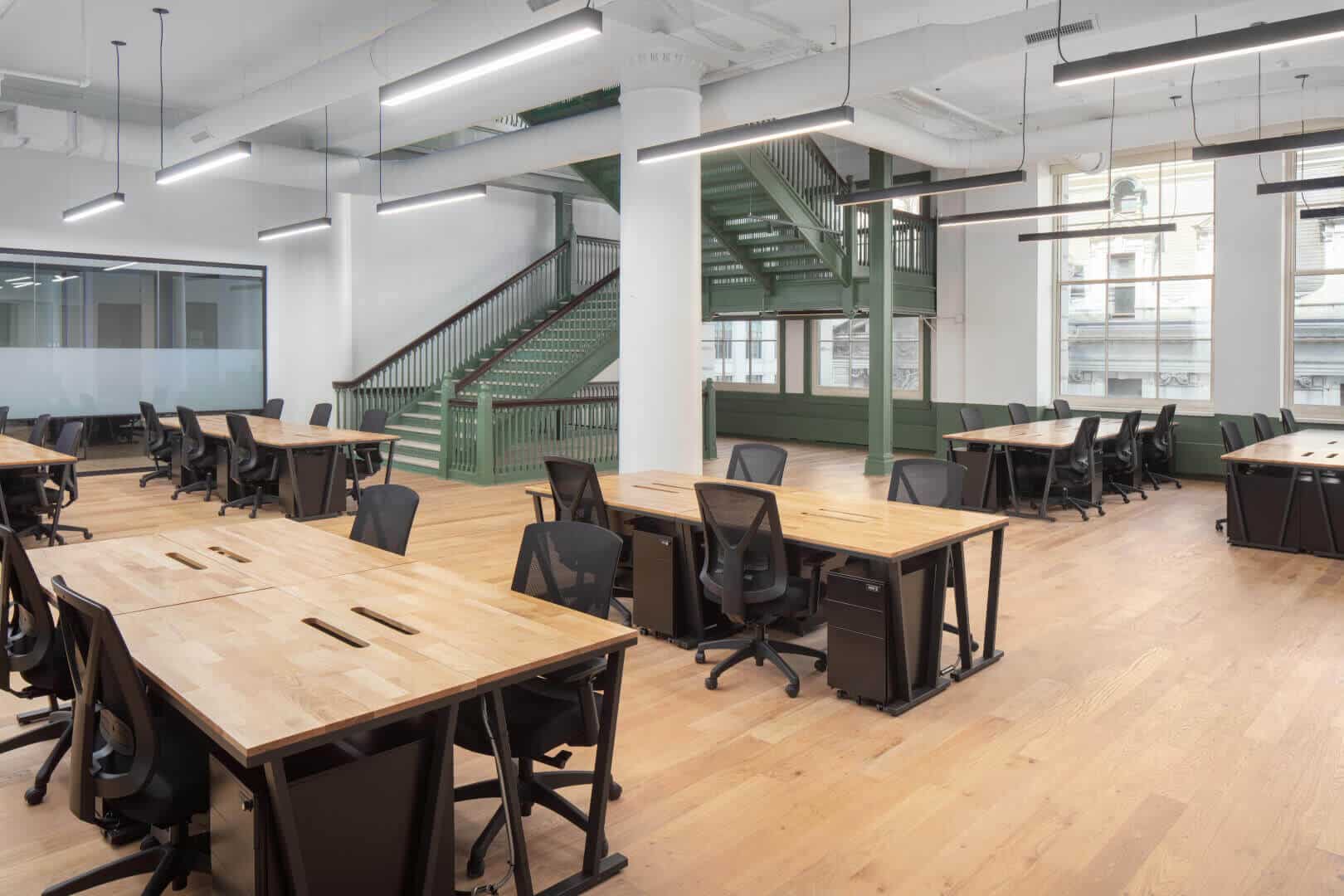
#MemberSpotlight – The Long-Term Cost Savings When Using Renewable Energy
We’re talking with: Andrew Mack, CEO
Company name: Octopus Energy Germany
Industry: Utilities
Mindspace Location: Mindspace Stachus, Munich
Tell us about yourself? What is your background?
I grew up on a farm in Somerset, England. My parents were drawn into farming by the belief that some modern farming methods – for example, using growth hormones to make animals mature faster and keeping hens in battery cages – were bad for both animals and people. It was at the beginning of the organic food movement, and we were part of a new way of thinking about the environment and animal husbandry.
Tell us about your company, when did you start it? What was the motivation behind it?
I was interested in engineering from a very young age. We had a small wind turbine on our farm and a couple of solar panels, and from that grew my interest in clean energy. When I graduated from university with a Master’s in Engineering I couldn’t find a challenging engineering job, so I ended up working in management consulting. After a few years, I saw that a global market for renewable energy was emerging, so I focused my career on becoming an expert in it.
After 12 years of consulting to big energy companies I decided it was time to switch to building new energy companies, so I joined a new entrant energy retailer in the UK. After three years in which we grew the company sixfold, I got itchy feet and decided to start my own business. I examined countries around the world and decided that the biggest opportunity was in Germany. I then quit my job, moved my family to Munich, and started from scratch to build my own energy retailer.
What are the incentives for people to start using renewable energy?
Had you asked me this question 10 years ago, I would have said because it’s good for the environment, and that’s it. Back then renewable energy was considerably more expensive than generating energy by burning fossil fuels. But now renewable energy is increasingly the cheapest form of energy available, particularly when the technology is matched to the local conditions. For example, wind turbines placed near a windy coastline, or solar panels in a dry, sunny climate. So using renewables is no longer about finding incentives for people to do it – it’s quickly becoming the cleaner, cheaper option.
How much on average do you save per year / per household when using renewable energy?
There are big savings to be made, but they don’t come from switching existing household energy consumption to 100% renewables. Because electricity is a traded commodity, households pay a very similar price regardless of where the electricity is generated. The big savings come from switching away from expensive fossil fuels (e.g. oil-fired heating, petrol-engined vehicles) and actually using more electricity. This requires a mindset shift among governments and regulators: As our electricity mix becomes increasingly clean – in Germany, more than 50% of all electricity is already from renewable sources – we need to abandon the idea that we need to discourage people from using electricity by making it more expensive. In fact, we need to do the opposite: make electricity cheaper so that people start using it to replace dirty fuels.
Why is renewable energy cheaper in the long run than non-renewable?
Once a wind turbine or a solar panel has been built, the costs of operating it are very low. By far the biggest expense is the cost of manufacturing and installing it in the first place. As the world builds and installs more turbines and panels, the industry gets more efficient and these costs come down. In contrast, over the lifetime of a coal-fired power station by far the biggest expense is the coal – even before any cost is attached to the negative environmental impact.
So renewables have a higher upfront cost, but over their lifetime their total cost divided by the amount of electricity produced (the so-called ‘levelised cost of energy’) is in many cases already lower than non-renewables.
Is there a difference in the setup process between renewable and non-renewable energy providers?
There used to be a big difference, but nowadays it’s very easy to make the switch from a non-renewable energy provider to a renewable one. What’s difficult is creating ways for customers to take advantage of periods when there is plentiful – and cheap – renewable energy, for example when the sun is shining or the wind is blowing. This is an area where Octopus has introduced a lot of innovation in the UK market, and we will be adapting this for the German market in the coming months.
What is the impact on the environment of using renewable energy?
At the simplest level, renewable energy allows us to dramatically reduce society’s CO2 emissions. But it also helps to improve air quality that suffers from the particulate matter and polluting gases that inevitably come from burning fossil fuels. We’ve all walked down the street and breathed in disgusting fumes from a dirty diesel-engined bus or car. Imagine if every vehicle was electric – we and our children would never have to experience that again.
Are there any customer experience initiatives that you use as a company?
We operate an online community as a way to help our customers to help each other, and also to engage with them on important topics. It allows us to have two-way conversations with our customers and to bring them together for group discussions.
What do you think are the main struggles in today’s energy consumers’ lives?
For most people in Germany, the biggest struggle is getting a fair deal. Most energy companies use ‘tease and squeeze’ tactics: Offering a heavily discounted price in the first year, but then with a punitive price increase thereafter. The law allows energy companies to lock customers into contracts that last for a year or more, and as a result, they can get stuck paying much higher prices than they ever expected to. This is perfectly legal, but it is designed to be in the best interest of the company, not the customer.
How are you solving those consumer problems?
We allow customers to start and end their contracts whenever they like. We believe that customers should have the freedom to decide what is right for them. If we give our customers great service and a competitive price they will stay. If we don’t then we need to work harder!
As we are running the “Green” content series, what would be that one green initiative you would advise our community to implement in their day to day-to-day life?
Start thinking about getting an electric car. Test drive different models, talk to people that have owned them, read online forums. I think most people will be positively surprised by just how good electric cars have become in the last five years, and they may well discover it could save them money – as well as being a much more pleasant and relaxing driving experience.
What are your favorite news or inspirational sources when it comes to green initiatives?
One of my favorite sources is a weekly email called “Environmental Titbits”. It’s a great roundup of what’s new in the clean energy market.
How does working at Mindspace help your team to move forward?
We love the location, the design of the office, and the flexibility that it gives us as we grow.
What inspires you the most at your workplace?
We are very fortunate in having a view out over the rooftops of Munich. It’s a beautiful city.






